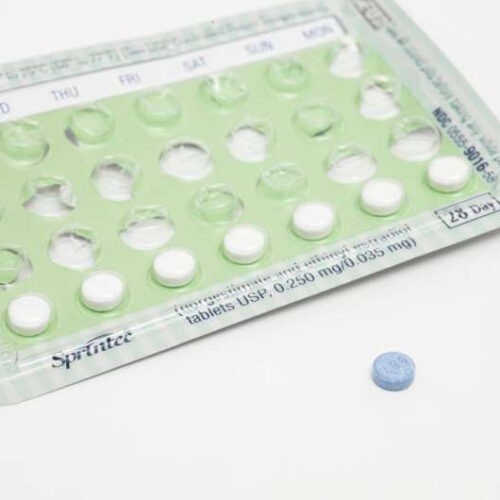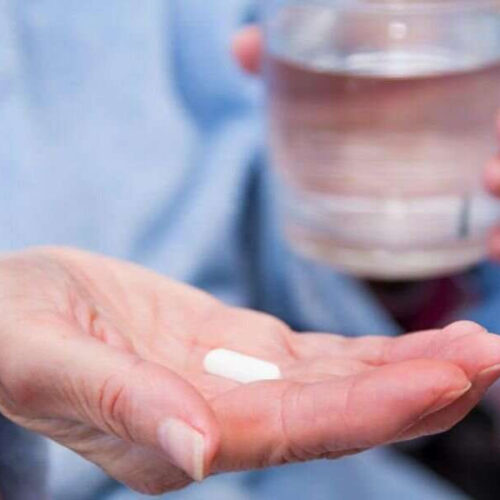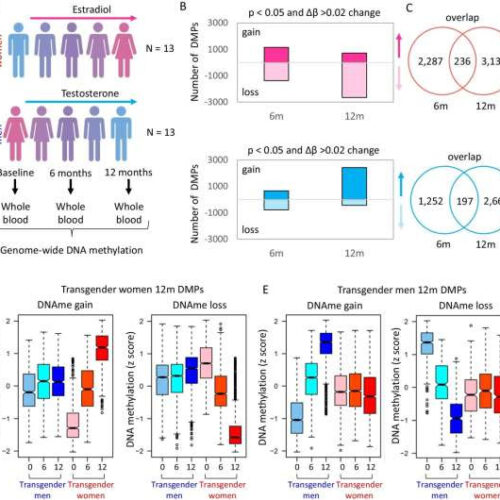Miriam E. Tucker, for Medscape July 01, 2022 Researchers published the study covered in this summary on medRxiv.org as a preprint that has not yet been peer reviewed. Key Takeaways Estrogen therapy either by itself or in combination with progesterone among women aged 65 and older is beneficial and does not necessarily raise mortality or cancer risk. ...
Tag: <span>hormone therapy</span>
The North American Menopause Society releases its 2022 Hormone Therapy Position Statement
THE NORTH AMERICAN MENOPAUSE SOCIETY (NAMS) CLEVELAND, Ohio (July 7, 2022)—In the 20 years since the Women’s Health Initiative, hormone therapy remains one of the most hotly debated topics around the treatment of such bothersome menopause symptoms as hot flashes. In an effort to provide the most up-to-date, scientifically based information on the topic, The...
Oral contraceptives and hormone therapy increase the risk of stroke during the first year of treatment
by Uppsala University Credit: Unsplash/CC0 Public Domain A new study from Uppsala University shows that oral contraceptives and hormone therapy at menopause increase the risk of stroke. The increased risk is greatest during the first year of treatment and then declines. The study, which is now published in Stroke, is based on data from over a quarter...
USPSTF advises against hormone therapy to prevent chronic conditions
The U.S. Preventive Services Task Force recommends against use of combined estrogen and progestin and estrogen alone for primary prevention of chronic conditions in postmenopausal persons. These findings form the basis of a draft recommendation statement published online April 19. Gerald Gartlehner, M.D., M.P.H., from the RTI International-University of North Carolina at Chapel Hill Evidence-based...
Gender-affirming hormone therapy can influence gene activity
by University of Melbourne Figure 1. Gender-affirming hormone therapy model induced progressive change in blood DNA methylation. A Longitudinal GAHT model with blood collection at baseline (before hormone therapy), and 6 and 12 months after treatment. In total, samples from 13 transgender women and 13 transgender men were included in the study. B Number of differentially...
Menopausal Hormone Therapy and Dementia
Interview conducted by Emily Henderson, B.Sc.Oct 6, 2021 Thought LeadersDr. Yana VinogradovaSenior Research FellowUniversity of Nottingham In this interview, News-Medical speaks to Dr. Yana Vinogradova about her latest research into menopausal hormone therapy (MHT) and its unassociated risk to dementia. What provoked your latest research into menopausal hormone therapy (MHT) and dementia? We have been...
Study aims to debunk concerns of increased heart disease risk of hormone therapy
CLEVELAND, Ohio (Oct. 5, 2021)—Although hormone therapy (HT) remains the most effective treatment for menopause symptoms, some women have hesitated to use it because of concerns about various adverse health effects. A new study, however, is reducing some of those concerns, showing no increased risk of heart disease or type 2 diabetes relative to HT...
Determining ‘vascular age’ is best predictor of cardiovascular risk with hormone therapy, says study
by University of Oklahoma Credit: CC0 Public Domain For women who are talking to their physicians about hormone therapy for the relief of menopausal symptoms, the decision isn’t always straightforward. Hormone therapy brings an increased risk of cardiovascular disease, but so does midlife itself—simply because of the aging process and an increase in risk factors like...
Gender-affirming hormone therapy may increase risk of high blood pressure
AMERICAN HEART ASSOCIATION DALLAS, April 19, 2021 — Gender-affirming hormone therapy (GAHT) was associated with blood pressure changes in both transgender men and women, according to new research published today in Hypertension, an American Heart Association journal. Given the higher burden of heart attack, stroke and other cardiovascular conditions among transgender men and women, blood pressure screening and...
Hormone therapy shown to reduce effects of nocturia in postmenopausal women
THE NORTH AMERICAN MENOPAUSE SOCIETY (NAMS) CLEVELAND, Ohio (March 17, 2021)–As women age, they are more likely to wake up in the middle of the night to pass urine. The loss of estrogen during the menopause transition accelerates this problem, which is known as nocturia. A new study evaluated the effectiveness of different hormone therapies...





